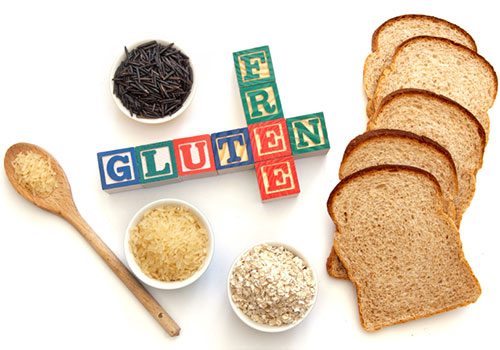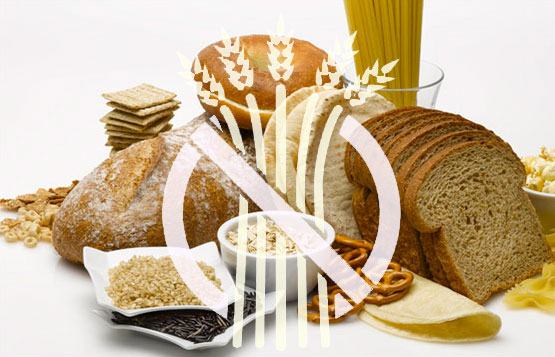Coeliac Awareness Week (May 8th – 14th) is a time to raise public consciousness about the health consequences many coeliacs experience.
Coeliac disease is believed to be a lifelong autoimmune condition that causes the intestine to become inflamed, losing its ability to absorb nutrients from the diet and potentially leading to other kinds of associated illnesses.
Symptoms of Coeliac disease include tiredness and headaches, regular stomach pain, gas or bloating, diarrhoea, constipation or gastrointestinal symptoms like nausea and vomiting.
Coeliac disease is caused by an adverse reaction to gluten and this creates an immune response, leading to inflammation in the small intestine. When the normal villi are destroyed, that’s when nutrients are unable to be absorbed from the diet.
While some believe that people can be genetically predisposed to developing celiac disease, not everyone who has celiac disease in their family develops this condition. There is another unknown reason why this autoimmune response occurs.
Even more people are unaware that they are experiencing the symptoms of celiac disease or may be gluten sensitive. Gluten is found in three types of cereal and these include wheat, rye and barley. These are found within a wide range of foods including breads, pastas, cereals, cakes, certain kinds of sauces and ready meals, so it can be difficult to avoid without taking the necessary precautions or having good alternatives available.
The good news is that as more people are aware of coeliac disease, the amount of options available has greatly increased meaning that it’s possible to replace a wide range of food products containing gluten and still enjoy all of your favourite dishes.
Yet just because a food is gluten-free doesn’t mean it’s healthy. Many gluten-free products replace wheat with corn or potato starch that are high in sugars, causing blood sugar levels to spike and potentially creating inflammation in the body that can lead to diseases in the long-term.
As a general rule it’s best to avoid many of the products in the ‘Free From’ section of your supermarket as many of the ingredients are just as unhealthy as their traditional counterparts. Instead, focus on using healthy ingredients to create your own bread, pastas, cereals, etc.
Buckwheat Flour
Sprouted and organic Buckwheat seed has many benefits for health. Along with supplying important vitamins and minerals, buckwheat is high in fiber, digestible protein and disease fighting antioxidants. A healthier alternative to wheat flour, this is the ideal way to enjoy bread, cakes, cookies and more without any of the unwanted consequences. Take a look at some of the creations below…
Really Healthy Buckwheat Bread
Really Healthy Flour – Buckwheat Pizza Base
Really Healthy Flour Chocolate Buckwheat Pancakes
Legume Pasta
Legumes like black beans, chickpeas, mung beans and red lentils are a rich source of dietary fiber, along with protein, B-vitamins, iron, zinc, magnesium and potassium. Organic, non-GMO and gluten-free, Legume pasta enables you to enjoy the taste and texture of your favourite pasta without any of the unwanted and unhealthy side effects. Take a look at some of the creations below…
Black Bean Penne with Tofu, Green Beans and Sesame Seeds
Italian Mung Bean Penne Pasta Salad
Really Healthy Pasta with Avocado Sauce
Recommended Examples
 Really Healthy™ Organic Sprouted Buckwheat Flour – This contains Organic Sprouted Buckwheat seed flour, ideal for making pancakes, pasta and for baking purposes.
Really Healthy™ Organic Sprouted Buckwheat Flour – This contains Organic Sprouted Buckwheat seed flour, ideal for making pancakes, pasta and for baking purposes.
 Really Healthy Pasta™ – A wide range of gluten-free legume pastas; Black Bean, Buckwheat and Golden Flaxseed, Chickpea, Mung Bean and Red Lentil. Non-GMO and organic, Really Healthy Pasta™ is the healthy alternative to traditional wheat or shop bought gluten-free pasta. Easy to prepare and ready in 5 minutes, Really Healthy Pasta is the nutritious and delicious healthy meal replacement.
Really Healthy Pasta™ – A wide range of gluten-free legume pastas; Black Bean, Buckwheat and Golden Flaxseed, Chickpea, Mung Bean and Red Lentil. Non-GMO and organic, Really Healthy Pasta™ is the healthy alternative to traditional wheat or shop bought gluten-free pasta. Easy to prepare and ready in 5 minutes, Really Healthy Pasta is the nutritious and delicious healthy meal replacement.












I have symptoms of coeliac but my GP tells me i do not have it.What do you suggest
Hi Roland, it is possible that some people may have non-coeliac gluten sensitivity, which means that although they haven’t got an allergy to gluten the gut is still sensitive to it, and it may still be posing a problem to the body. I would suggest cutting all gluten from the diet to see if symptoms improve. If there is inflammation in the gut, then use Gastro Enzyme Therap, as directed, from http://www.goodhealthnaturally.com to aid healing. Please see here a full digestive health plan, to help you further: https://goodhealthhelpdesk.com/index.php?/HelpDeskDirect/Knowledgebase/Article/View/1957/116/digestive-health-plan